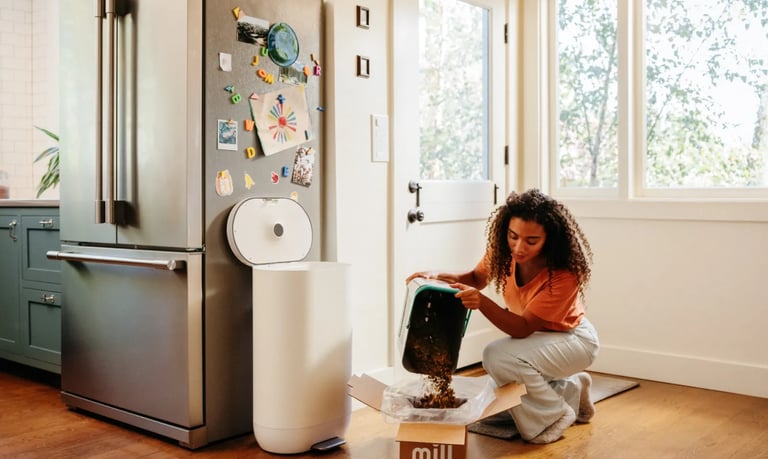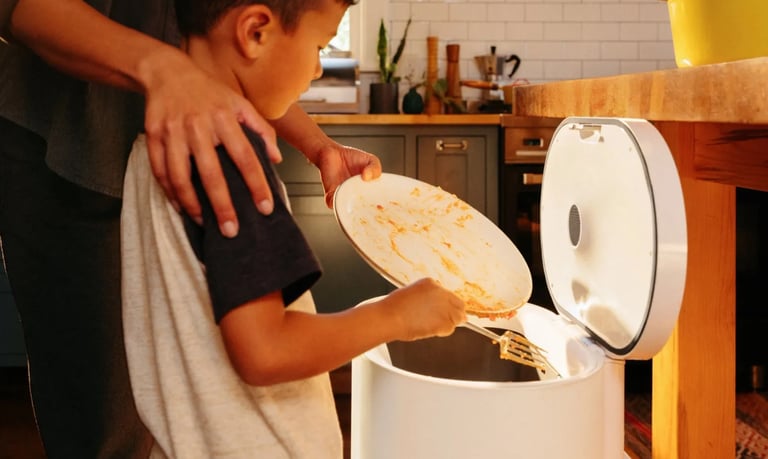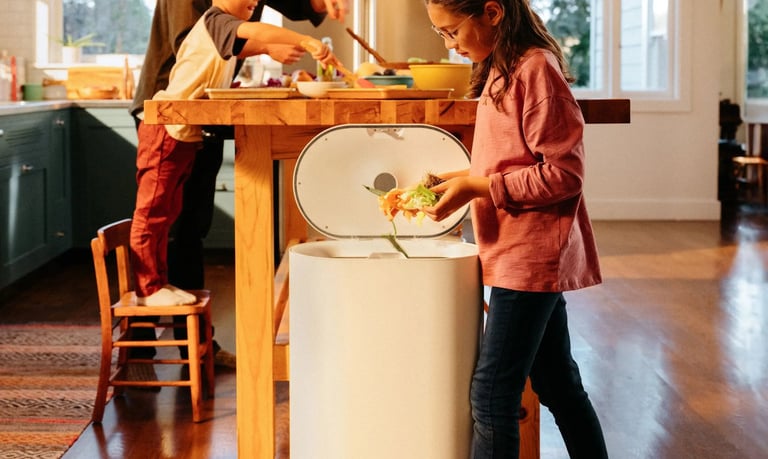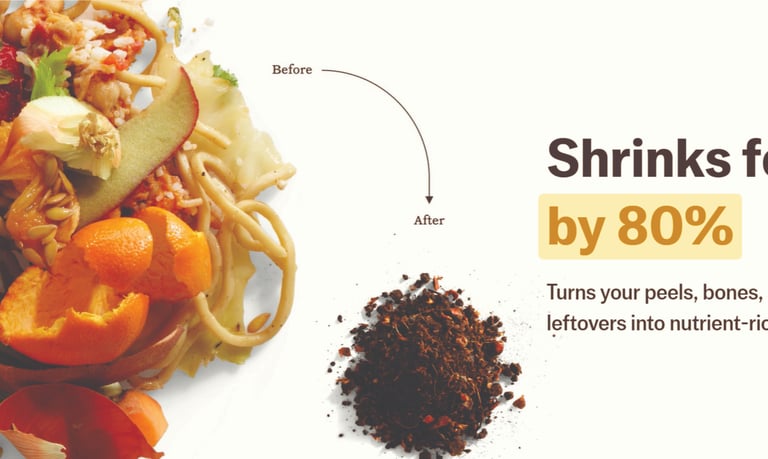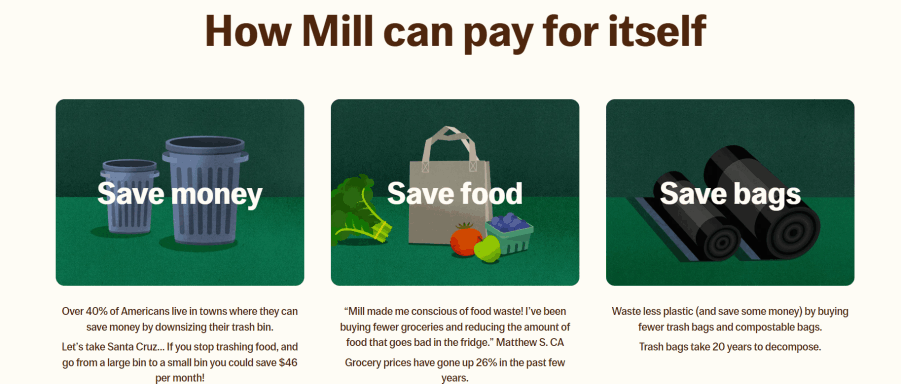Mill is the first complete food-recycling service for the home
INNOVATION
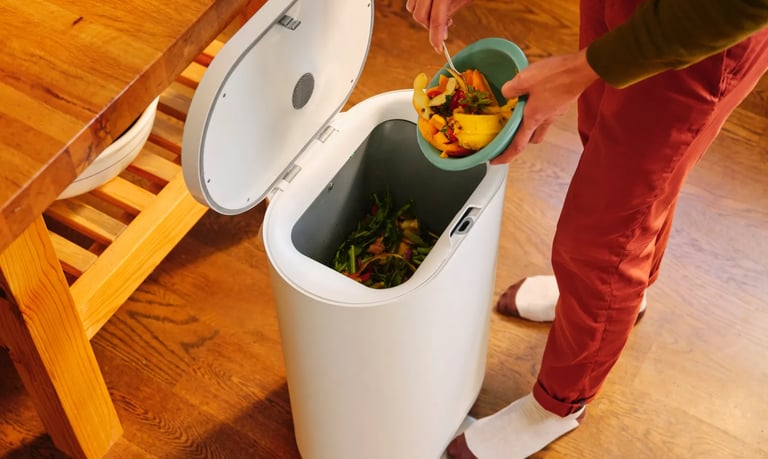

Mill is the first complete food-recycling service for the home that transforms kitchen scraps into food for chickens. Mill makes it easy for people to keep food out of landfills and take climate action at home.
The Mill kitchen bin dries and grinds uneaten food overnight, transforming kitchen scraps into nutrient-rich Food Grounds. Food Grounds get picked up, processed, and sent to farms, where they can become food for chickens.
People are using the Mill service and impact tracking features to create educational moments for the whole family, teaching children that small habits add up to big impact.
Mill today shared early results from people who are using the food-recycling service to prevent wasting food at home.
Food waste is terrible for the planet, and a hassle to deal with at home. Rotting food can smell and attract fruit flies and other rodents. As food decomposes in a landfill it produces methane, a powerful greenhouse gas 80 times more potent than CO2 over a 20 year period.
Mill changes all of that by closing the loop in the food system, turning kitchen scraps into food for chickens. The Mill kitchen bin dehydrates and removes odor from wasted food overnight, turning it into nutrient-rich Food Grounds. Once the kitchen bin is full – which takes a few weeks – Food Grounds are picked up, processed, and turned into food for chickens. You can reserve your bin while supplies last at mill.com/reservation.
Zero waste. Zero work.
Some inventions change our lives. The dishwasher. The clothes dryer. And now, Mill — the food recycler that works while you sleep.
Here's a snapshot of how people have been using Mill since its launch:
Mill is a habit that sticks
Mill is passing the "toothbrush test" - 99% of users are interacting with the bin more than twice a day. On average, households are pressing the pedal more than seven times per day.
A recent survey of Mill customers revealed that over 94% of respondents would recommend Mill to a friend.
When asked about the benefits of the service, customers cite: Convenience, ease, and at-home impact; Reduction in trash volume; Increased awareness of food waste and money saved at the grocery store
Using Food Grounds to feed chickens conserves energy and nutrients in the food system
It takes about three weeks to fill up the Mill kitchen bin, and households are sending in a box of Food Grounds every five to six weeks, weighing an average of 10lbs
One household in Virginia sent back a box of Food Grounds weighing in at 24.98 pounds. That one box contained enough food to contribute to an egg-laying chicken's diet for more than a year—keeping about 8.5 standard trash bags of food out of the landfill, and avoiding ~83 kg-CO2e emissions (equivalent to not driving 213 miles in the average car).
Mill's average energy usage is similar to running a load in the dishwasher every other day, and Mill's preliminary LCA (https://mill.com/impact) estimates that households that use the Mill service can avoid about a half-ton of emissions per household per year.
Mill's business continues to expand, with partnership deals and pilots happening across the spectrum of government, private enterprise, and multi-family buildings, demonstrating the broad resonance of Mill's offering
Trash stinks. Together, we can do better. Mill has created a new system to help you outsmart waste at home. Learn more here.
Mill was founded in 2020 by Matt Rogers and Harry Tannenbaum, who worked together at Nest, building the iconic Nest Learning Thermostat and other smart home products. The lessons they learned about encouraging new habits at home that are good for people and the planet were applied in creating Mill to change our perception of waste, starting in the kitchen.
Mill and Food Grounds are trademarks of Mill Industries Inc.
